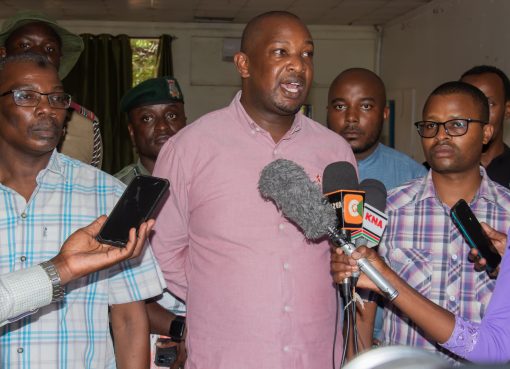The Rural Electrification and Renewable Energy Corporation (REREC) has launched a five-year strategic plan where it is set to spend a whopping Sh199 billion to light up the country.
The plan covers the period 2018/2019-2022/23 and aims to electrify about 25,899 public facilities.
Speaking during the event in Mombasa, REREC Board of Directors, Chairman Simon Gicharu, said focus was to connect rural public facilities and households in the country.
Prof Gicharu said that the corporation targeted public institutions including 278 primary schools, 1,339 secondary schools, polytechnics, institutions of higher learning, 1,428 health centers/dispensaries, 5,705 markets and trading centres, worship centres, police posts and processing plants.
”The corporation will also connect about 112,500 households that are within a radius of 600 metres of new transformers to electricity,” he said.
During the same period, a total of 3,728 public facilities in the off-grid areas will be electrified through installation of renewable energy mini-grid systems.
”And to further support the use of renewable energy in the country, REREC aims to install and meter 200 Solar PVs and 20 wind energy systems for institutions; develop and promote biogas and biomass systems for 20 institutions as well as provide maintenance for 5,000 institutions already installed with renewable energy systems,” Prof Gicharu said.
The electricity corporation will also install 50,000 out of the 250,000 mapped solar home systems.
He said that the launch marks celebration of milestone achievements since the establishment in 2006 and reiterated that they are keen to establish linkages with all the 47 County Governments in the country whom they have been working with before to increase electricity connectivity.
”It is the first plan to be prepared by REREC, although there are two others that have been developed under REREC’s predecessor, the Rural Electrification Authority (REA) since its inception in 2006.
“This plan comes at a time when the energy sector in Kenya has undergone restructuring under the Energy Act (2019) that gives REREC a broader mandate on renewable energy development,” the chairman said.
He said that the plan is a product of extensive consultation and comprehensive feedback from their internal and external stakeholders who provided valuable suggestions and information that will aid in achievements of RERECs mandate.
Energy Principal Secretary, Maj Gen (rtd) Gordon Kihalangwa, commended the REREC board, management and staff for coming up with the plan and challenged them to ensure that everything in the plan is made achievable for the betterment of the nation.
”This document could not have been launched at a better time than when there are reforms in the energy sector in the country. The cost of electricity has been going up and any interventions to control are welcome,” Kihalangwa said.
REREC Chief Executive Officer, Peter Mbugua, said that over the five-year implementation period, REREC has been actively involved in developing and promoting the use of renewable energy, increasing electricity connectivity, promoting research and development in renewable energy as well as establishing strategic collaborations with stakeholders.
He added that they are also keen on building human capital, strengthening institutional capacity and achieving financial sustainability.
”The corporation expects to mobilize these funds mainly from the National Government through the exchequer. Other sources of funding include development partners, Public-Private Partnerships, counties, investments and the community,” Mbugua said.
He explained that the implementation of the Strategic Plan will be monitored through the guidelines of the National Integrated Monitoring and Evaluation System (NIMES).
Mbugua said that a balanced scorecard approach will be used to monitor all the initiatives to achieve the priority areas of the plan and the implementation matrix.
”This system will be monitored through quarterly, half-yearly and annual progress reports to the management and board.
“Based on the results of the monitoring, appropriate corrective action will be undertaken to ensure that the strategic plan remains alive and relevant to the mandate of the corporation,” the CEO said.
To ensure efficiency and professionalism while implementing the strategic plan, the corporation also launched 45 policies; developed, reviewed, formatted and combined to form a volume of the corporation’s internal policies.
These policies will assist the corporation to enhance internal governance, infuse the desired ethical culture and lead to smooth, efficient and effective operationalisation of its mandate.
By Hussein Abdullahi





